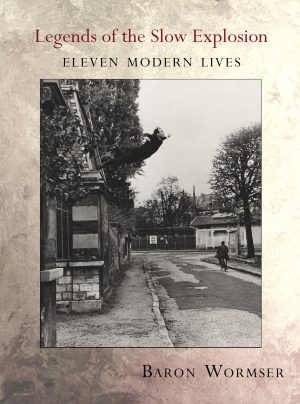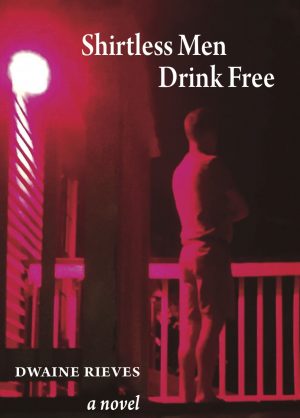Time Lapse
by Alvin Greenberg
$23.95
“…handsome and haunting, a challenge to us all to think about our shadow selves and a pure plain pleasure to read.” —Lance Olsen, author of Girl Imagined By Chance
Format: paperback
19 in stock
Walter Job, college professor and family man, has undeniable talents. The professorial life is a natural for him, but so is the art of murder—and it’s so much more remunerative. Outwardly serene, he pursues both vocations, has an affair, and avoids pursuit. Inwardly, his life comes more and more undone.
The character of Walter Job is keenly etched on a mirror that reflects his search for what drives him and our violence-prone society. This literate, layered, intriguing novel is a dark tour de force for Alvin Greenberg.
“What’s wonderful about Alvin Greenberg is that he never steps into the same set of narrative conventions twice. In Time Lapse, he appropriates and manipulates those of crime fiction, academic satire, tryst novel, and more to deeply impressive effect, turning the story of a fastidious, contemplative, amoral professional hitman (and professor of modernist literature) into a metafiction about the nature of writing and a philosophical exploration about the nature of contingency, time’s passing, and death in our culture of violence. The result is both handsome and haunting, a challenge to us all to think about our shadow selves and a pure plain pleasure to read.” —Lance Olsen, author of Girl Imagined By Chance
Additional information
| Weight | 1.3 lbs |
|---|---|
| Dimensions | 6 × 1 × 9 in |
1. Morning News
“All those deaths for which he’s been responsible bother him not one bit so much as the single life that pursues him now. Bothers him indeed! Distracts him from thoughts about his upcoming lecture and, as happens ever so rarely, turns him into the monster of the household. His two young daughters, home from grade school and pre-school on a spring vacation which fails to coincide with his own, are in their separate bedrooms, drying their tears and tending each to her own psychic wounds, each no doubt wondering what she did to deserve an ogre-father who would drive her away merely for playing hide-and-seek under the breakfast table, each perhaps rediscovering on her own the myth of the foundling: when would the real father come to rescue them?
The real father sits in the kitchen, brooding, his coffee cold, slowly re-opening the newspaper that he carefully folded shut before allowing himself that rare moment of explosion, the fragments of which he can still feel drifting down around him. And the real mother, the real wife, has meanwhile simply left, trailing a cashmere sweater from one hand and her favorite tapestry purse—purse, he thinks: ha! it’s practically a suitcase, and I’m supposed to be the traveller—from the other, easing her little blue convertible out of the garage and into the street without the slightest show of anger but, as usual, leaving the double garage door open. As usual, he is certain, it’s the only open garage on the entire block. And where has she gone? To the shopping center? To visit a woman friend? To play golf? To meet her lover? Who cares!
Walter Job does, but it’s more than he can concentrate on right now. He loves his wife dearly, but he has just read in this morning’s paper that a new federal agent has been assigned the responsibility of solving a large number of murders which have occurred primarily in midwestern states over the past decade and which there is apparently reason to believe are, somehow, linked.
Walter knows who committed many of those murders: and more. Walter could easily stretch the geographical limits of this morning’s news reports to include both coasts. The south and southwest. A little Canada.
Walter does not need to read the newspaper to know that many of those murders have been committed by the same person. Gratuitously—enough to upset anyone at breakfast—the newspaper tells him that all the same, though it neglects to present the reasoning that has led to such knowledge. It admits, to the contrary, that the distribution of all this death appears random, its motivation, in most cases, unknown. Even as newspaper articles go, it tells very little. Walter tells himself that for all they know, they might as well be trying to tie together a random collection of automobile accidents.
Nonetheless, the newspaper assures him, the new federal officer is certain that a speedy solution is now possible, that the murderer or murderers will soon be brought to justice. For security reasons, the government has refused to reveal the identity of the agent. Walter, approaching the end of the column, is for security reasons of his own not too taken by the newspaper’s protective apologies. All the same, he tracks the article down to where, in the humble confines of the last page of the first section, it continues to express confidence. The agent expresses anonymous confidence. His superiors express superior confidence: this is the same agent who has broken up an underworld ring dealing in stolen securities, who has twice retrieved not only the kidnapping victim alive and well but the ransom money besides, who has only in the past year solved a pair of previously unlinked murders which occurred decades apart, one in the east and one in the west, by connecting them to a recent apparent suicide in the middle of the country.
It is, Walter realizes, folding the newspaper neatly down upon all this confidence, the most talent that has yet been brought to bear on his activities…”
2. A Biblical Excursion
“Walter Job, who constantly busies himself explaining, even unasked, that it is not Job with a long o, like Job in the Bible, but Job with a short o, as in a job of work, goes on all too easily from there to consider himself in biblical terms. He has chosen this way of introducing himself to his classes, and then to almost everyone else, since his second year in graduate school, when he was unexpectedly assigned a course on The Bible as Literature. He stood in front of a large room full of undergraduates, many of them religious study majors who had signed up to take this course from an elderly Professor of Religion who had died during the summer and all of whom doubtless knew far more about the Bible than he did, and devised his personal analogy. Not a single sign of enlightenment shone in their eyes as they dutifully copied his name from the blackboard.
If he wasn’t Job from the Bible, he wondered, as he went on to explain that they would begin by examining the Book of Job as a work of fiction, as a classic short story in fact, then who was he? He wasn’t Jonah, that much he knew. Though already, by then, he felt himself swallowed up inside the body of a great beast, he was well aware that no one had sent him. Not to do what he was doing. Ishmael, he thought, as he wandered away after class in something of a daze, not the Ishmael in the story but the real Ishmael, might be more like it.
He felt somehow profaned by his participation in this particular class, wondering just what it was he was doing there. Call me Ishmael! he cried out silently to himself back in his office when he had finished reading the relevant passage from the Bible. I too have been cut loose from my home and sent to wander fatherless in the desert. This desert. Illegitimate by nature rather than by birth, like Ishmael I have watched the kingdom left behind me pass into the hands of my younger siblings, incompetents all. More power to them.
Yes, and he too, he recalled, like Ishmael had become something of an archer: a marksman, at least. The desert is a learning place…”


 Alvin Greenberg’s fourth short story collection, How the Dead Live, appeared in 1998 from Graywolf Press and a CD of the author reading his story, “the Power of Language” (previously included in Best American Short Stories) was released as Issue #6 of VOYS, a journal of the spoken word. Other short fiction has recently been published in Indiana Review, Mid American Review, Nebraska Review, American Literary Review, Five Points, and Salt Hill. His most recent books of poetry are Heavy Wings (Ohio Review Press) andWhy We Live With Animals (Coffee House Press); Apollonia’s Circus, his 1994 opera in collaboration with composer Eric Stokes, was hailed by one reviewer as “a major work;” and The Music of Silence, a collection of personal essays, was published by the University of Utah Press in 2002. His poetry, fiction and essays appear regularly in literary magazines, and he is the recipient of the Loft’s 1994 Award of Distinction in Poetry and the 1994 Chelsea Poetry Awards as well as fellowships from the NEA and the Bush Foundation. Born in Cincinnati, Ohio, he was educated at the Universities of Cincinnati and Washington and a member of the Macalester College English Department from 1965 to 1999, he now lives in Boise, Idaho, with his wife, poet Janet Holmes.
Alvin Greenberg’s fourth short story collection, How the Dead Live, appeared in 1998 from Graywolf Press and a CD of the author reading his story, “the Power of Language” (previously included in Best American Short Stories) was released as Issue #6 of VOYS, a journal of the spoken word. Other short fiction has recently been published in Indiana Review, Mid American Review, Nebraska Review, American Literary Review, Five Points, and Salt Hill. His most recent books of poetry are Heavy Wings (Ohio Review Press) andWhy We Live With Animals (Coffee House Press); Apollonia’s Circus, his 1994 opera in collaboration with composer Eric Stokes, was hailed by one reviewer as “a major work;” and The Music of Silence, a collection of personal essays, was published by the University of Utah Press in 2002. His poetry, fiction and essays appear regularly in literary magazines, and he is the recipient of the Loft’s 1994 Award of Distinction in Poetry and the 1994 Chelsea Poetry Awards as well as fellowships from the NEA and the Bush Foundation. Born in Cincinnati, Ohio, he was educated at the Universities of Cincinnati and Washington and a member of the Macalester College English Department from 1965 to 1999, he now lives in Boise, Idaho, with his wife, poet Janet Holmes.


